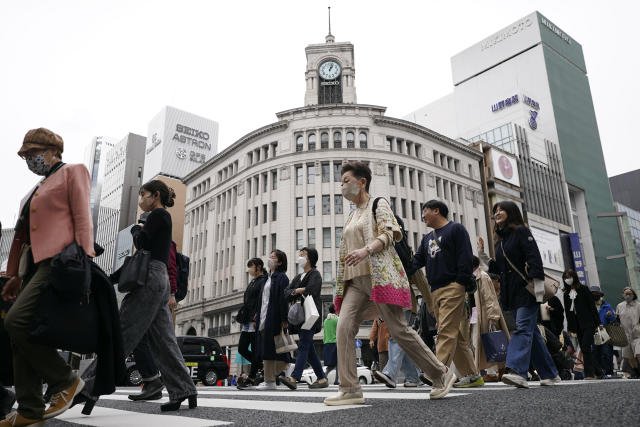Japan economy suffers worse-than-expected contraction of 0.5%.
Official data released on Thursday revealed that Japan’s economy contracted more than anticipated in the first quarter of the year, posing additional challenges for the country’s already unpopular government.
GDP Contraction and Export Downturn:
Gross domestic product (GDP) in the world’s fourth-largest economy shrank by 0.5 percent, exceeding market forecasts of a 0.3 percent decline.
The downturn was primarily driven by a significant drop in exports, which fell by 5.0 percent compared to the previous quarter’s growth of 2.8 percent.
Import figures also showed a decline, falling by 3.4 percent.
Impact of External Factors:
The economy was particularly impacted by the effects of a major earthquake that struck the Noto peninsula on January 1, as well as production disruptions at Toyota’s Daihatsu subsidiary.
🇯🇵 #JAPAN #economy
Enorme recesión en Japón.
PIB (Anual) Q1 -2,0%
PIB (Q1) -0,5%
Eso sí , al #Nikkey225 de momento le dá lo mismo. pic.twitter.com/Ci7h5U7kAv— FasesdelaBolsa.net® (@fasesdelabolsa) May 16, 2024
These setbacks compounded the challenges Japan has been facing, with the country hovering on the edge of recession since last year.
Ongoing Economic Struggles:
Japan’s economic woes have been exacerbated by prolonged periods of stagnant growth, deflationary pressures, and a rapidly aging population.
Also read: Japan announces scholarships for Pakistani students
Despite efforts to stimulate growth, recent data has shown minimal progress, with GDP growth revised downward for the last quarter of 2023 and a major contraction recorded in the preceding quarter.
Political and Economic Ramifications:
The disappointing economic figures are likely to intensify pressure on Prime Minister Fumio Kishida and his government, which has been grappling with low approval ratings for several months.
The loss of Japan’s status as the third-largest economy to Germany in 2023, along with projections of being overtaken by India, highlights the urgency for effective policy measures to address economic challenges.
Monetary Policy Dilemma:
The Bank of Japan (BOJ) faces constraints in its monetary policy decisions, despite a recent uptick in inflation. While the BOJ raised interest rates for the first time in 17 years in March, the wide interest rate differentials with other economies and the resulting pressure on the yen present complex challenges.
The recent depreciation of the yen against the dollar further complicates the economic landscape.
As Japan economy suffers worse-than-expected contraction of 0.5%, analysts suggest that the BOJ will closely monitor economic indicators, particularly second-quarter GDP data expected in August, before making any further policy adjustments.
